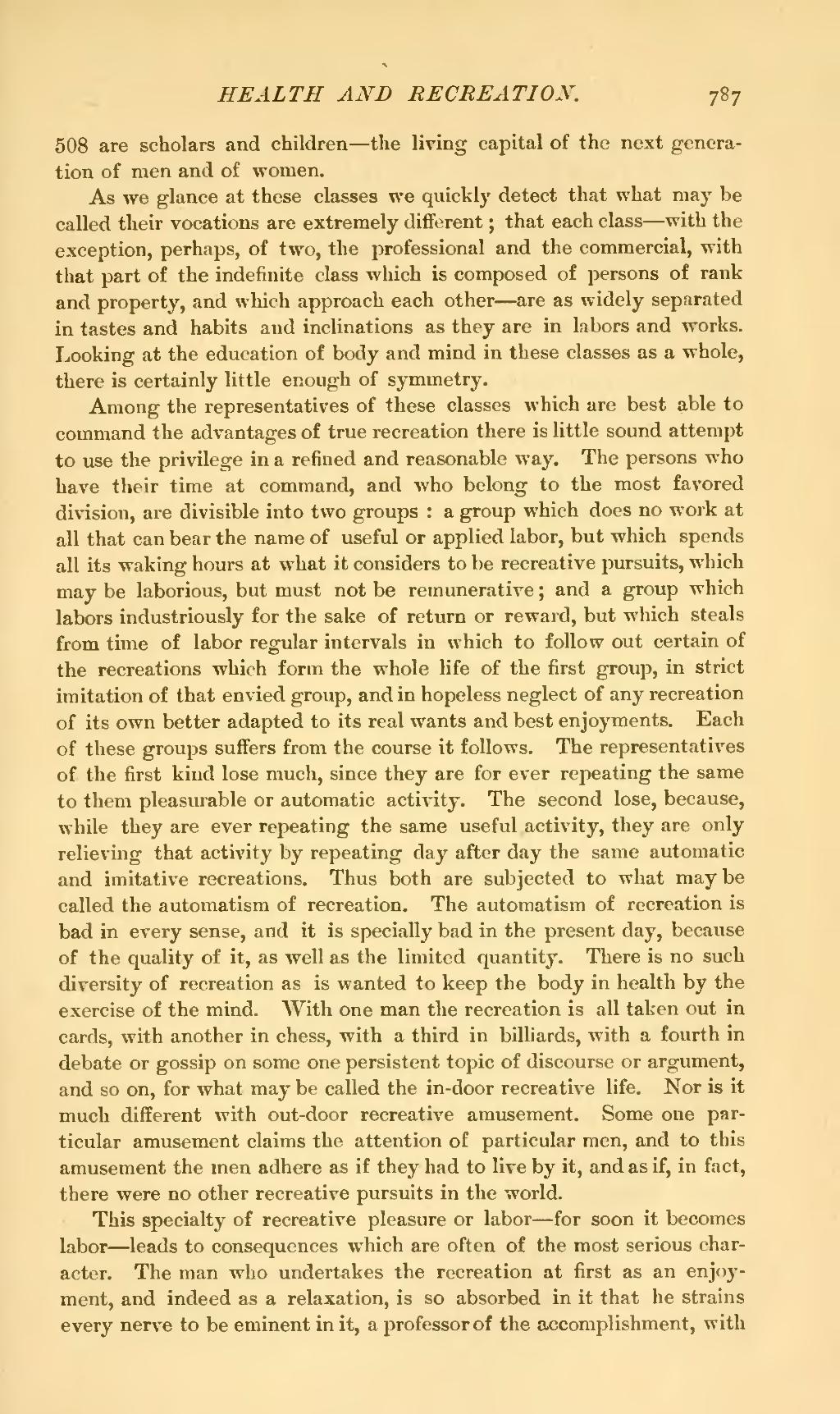508 are scholars and children—the living capital of the next generation of men and of women.
As we glance at these classes we quickly detect that what may be called their vocations are extremely different; that each class—with the exception, perhaps, of two, the professional and the commercial, with that part of the indefinite class which is composed of persons of rank and property, and which approach each other—are as widely separated in tastes and habits and inclinations as they are in labors and works. Looking at the education of body and mind in these classes as a whole, there is certainly little enough of symmetry.
Among the representatives of these classes which are best able to command the advantages of true recreation there is little sound attempt to use the privilege in a refined and reasonable way. The persons who have their time at command, and who belong to the most favored division, are divisible into two groups: a group which does no work at all that can bear the name of useful or applied labor, but which spends all its waking hours at what it considers to be recreative pursuits, which may be laborious, but must not be remunerative; and a group which labors industriously for the sake of return or reward, but which steals from time of labor regular intervals in which to follow out certain of the recreations which form the whole life of the first group, in strict imitation of that envied group, and in hopeless neglect of any recreation of its own better adapted to its real wants and best enjoyments. Each of these groups suffers from the course it follows. The representatives of the first kind lose much, since they are for ever repeating the same to them pleasurable or automatic activity. The second lose, because, while they are ever repeating the same useful activity, they are only relieving that activity by repeating day after day the same automatic and imitative recreations. Thus both are subjected to what may be called the automatism of recreation. The automatism of recreation is bad in every sense, and it is specially bad in the present day, because of the quality of it, as well as the limited quantity. There is no such diversity of recreation as is wanted to keep the body in health by the exercise of the mind. With one man the recreation is all taken out in cards, with another in chess, with a third in billiards, with a fourth in debate or gossip on some one persistent topic of discourse or argument, and so on, for what may be called the in-door recreative life. Nor is it much different with out-door recreative amusement. Some one particular amusement claims the attention of particular men, and to this amusement the men adhere as if they had to live by it, and as if, in fact, there were no other recreative pursuits in the world.
This specialty of recreative pleasure or labor—for soon it becomes labor—leads to consequences which are often of the most serious character. The man who undertakes the recreation at first as an enjoyment, and indeed as a relaxation, is so absorbed in it that he strains every nerve to be eminent in it, a professor of the accomplishment, with

